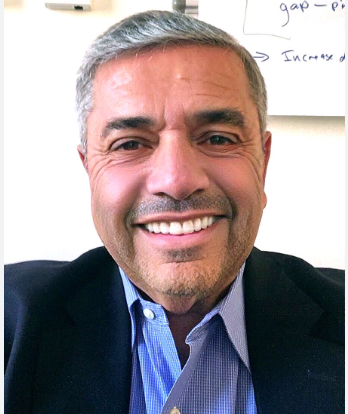Embarking on a career in cardiology requires dedication and a solid foundation of knowledge. To set yourself up for success, New Jersey-based cardiologist Dr. John Strobeck emphasizes the importance of thorough preparation before diving into the field of cardiology. Here are some essential steps to take before studying cardiology.
Familiarize Yourself with Cardiology Terminology: Cardiology is a specialized medical field with its own set of terminology. To begin your journey, invest time in studying and understanding the key terms and concepts related to cardiology. This includes learning about cardiac physiology and anatomy. Get acquainted with the structure and function of the heart, its chambers, valves, and major blood vessels. Familiarize yourself with terms like atria, ventricles, pulmonary veins, superior and inferior vena cava, tricuspid valve, and pulmonary artery. Gaining a solid foundation in cardiology terminology will facilitate your understanding of more complex concepts as you progress in your studies.
Master the Basics of Cardiac Physiology and Anatomy: Cardiovascular physiology delves into the intricate workings of the heart. It examines how the heart contracts, pumps blood, and regulates circulation. Understanding the basics of cardiac physiology is crucial as it forms the foundation for comprehending various heart conditions and their underlying mechanisms. Concurrently, grasp the fundamentals of cardiac anatomy, which focuses on the structure and organization of the heart. Familiarize yourself with the different chambers, valves, and major blood vessels. This knowledge will enable you to better interpret diagnostic tests and understand the impact of cardiovascular diseases on cardiac function.
Learn to Use an Electrocardiogram (ECG) Machine: Proficiency in using an electrocardiogram (ECG) machine is essential for any aspiring cardiologist. An ECG machine records the electrical activity of the heart, providing crucial information about its rhythm, conduction, and potential abnormalities. Mastering the operation of an ECG machine involves understanding how to place the electrodes correctly, interpret the readings, and recognize various ECG patterns associated with specific cardiac conditions. Familiarize yourself with normal ECG tracings and common abnormal findings. Practice interpreting ECGs and develop your skills in identifying arrhythmias, ischemic changes, and other cardiac abnormalities. This proficiency will be invaluable in your future diagnostic and treatment endeavors.
Seek Clinical Exposure and Experience: While theoretical knowledge forms the foundation, practical experience is equally vital in the field of cardiology. Seek opportunities to observe and shadow experienced cardiologists in clinics or hospitals. By observing patient encounters, diagnostic tests, and treatment procedures, you will gain insight into the daily practice of cardiology. Consider volunteering or working as a research assistant in a cardiology department to further enhance your exposure to the field. Actively engage with healthcare professionals, asking questions and seeking guidance. This exposure will not only deepen your understanding but also allow you to observe firsthand the challenges and rewards of a career in cardiology.
Continuously Update Your Knowledge: Cardiology is a rapidly evolving field with constant advancements in research and technology. Stay updated with the latest developments by regularly reading medical literature, attending conferences, and participating in continuing medical education (CME) activities. Engage with fellow cardiologists and join professional societies or organizations related to cardiology. By staying abreast of current trends and breakthroughs, you can continuously refine your knowledge and improve patient care.
In conclusion, Dr. John Strobeck embarking on a career in cardiology requires meticulous preparation. By familiarizing yourself with cardiology terminology, mastering the basics of cardiac physiology and anatomy, learning to use an ECG machine, seeking clinical exposure, and staying updated with the latest advancements, you will establish a solid foundation for your cardiology studies.



